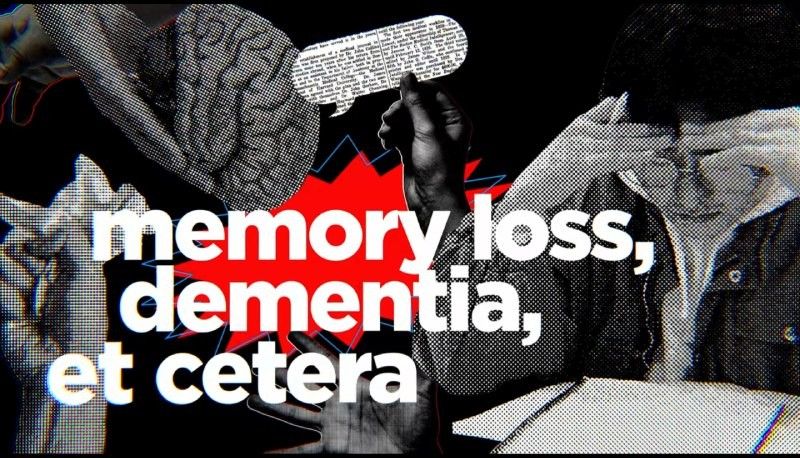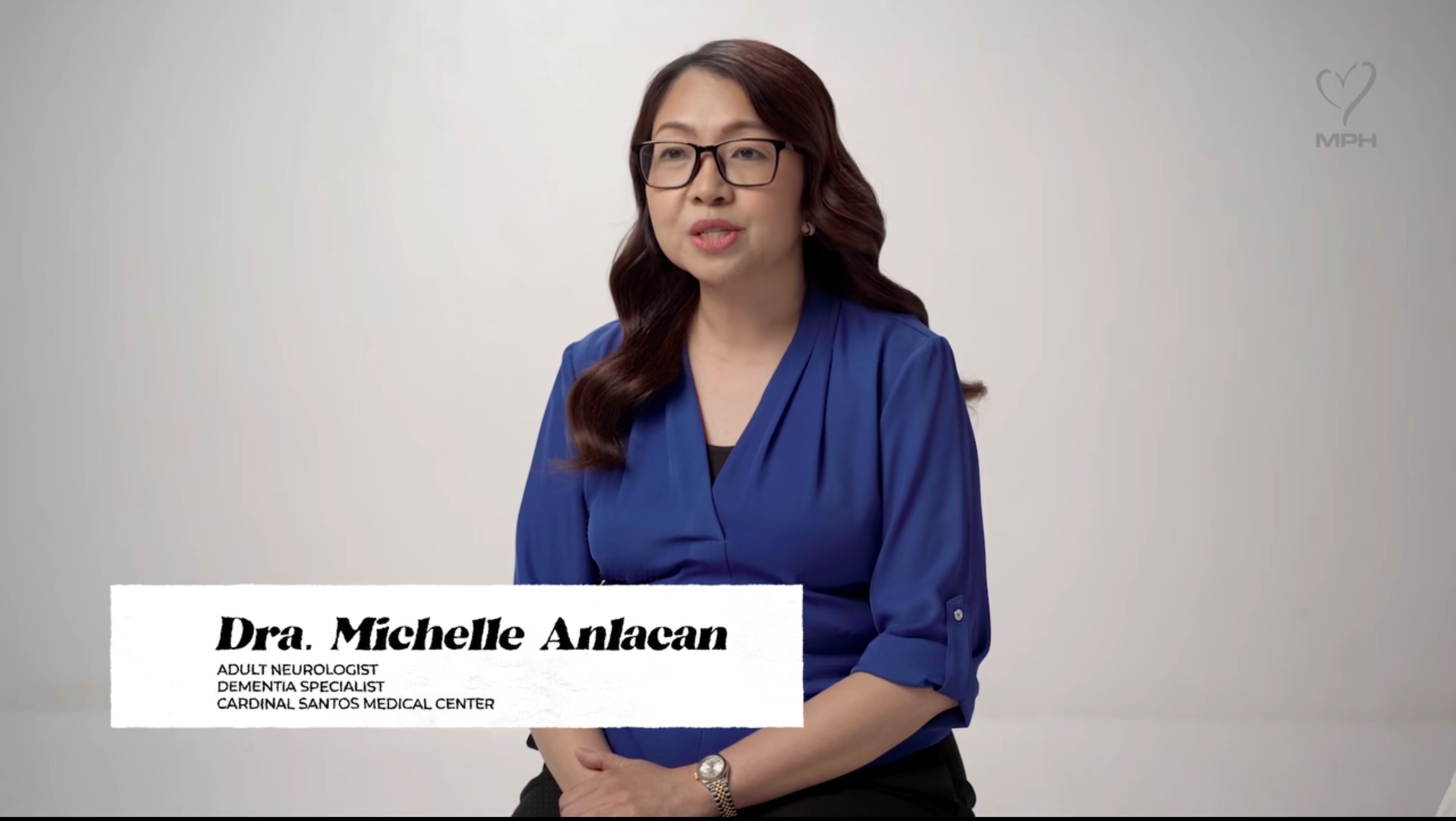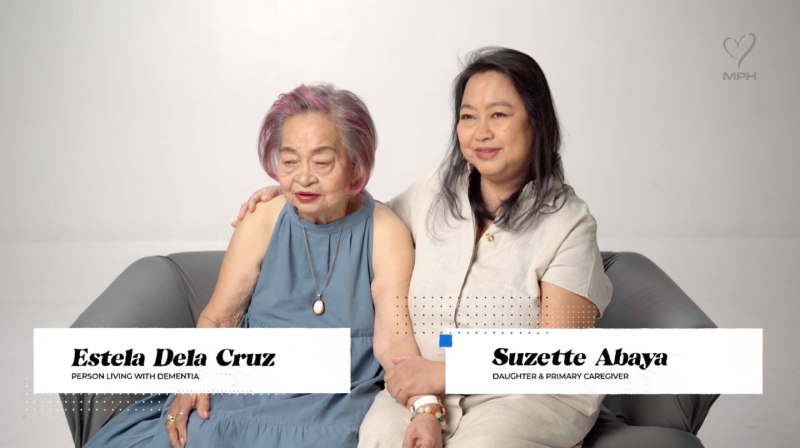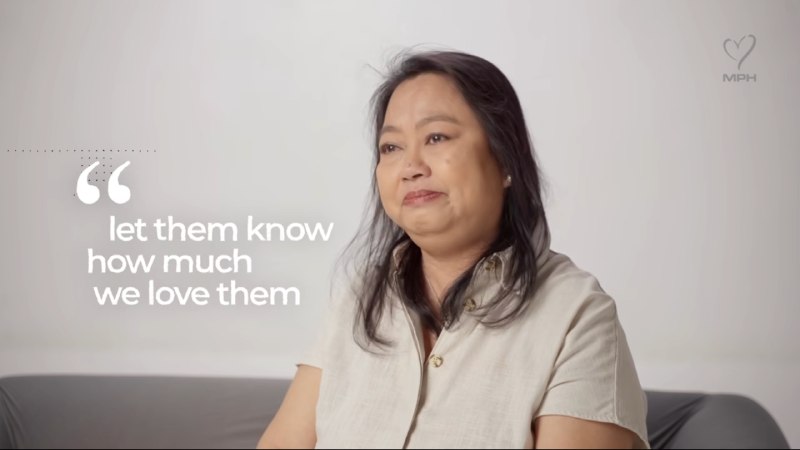‘Ulyanin?’ 5 myths about dementia busted in health docu-series

MANILA, Philippines — Dementia affects countless families and their loved ones in the Philippines and worldwide. Despite this, the condition remains misunderstood and underdiagnosed due to various misconceptions that surround it.
Last September, Metro Pacific Health marked the World Alzheimer’s Awareness Month with the release of a new episode of its “Decode” health docu-series, which featured the touching personal stories of Estela Dela Cruz, an elder living with dementia, and her devoted daughter, Suzette Abaya.
The episode, through a medical expert, also debunked myths about the condition. Here are some:
Myth 1: Forgetfulness is just a part of aging
It’s a common misconception to dismiss dementia as a natural part of the aging process. Many tend to believe that occasional forgetfulness, like missing an appointment or misplacing keys, is merely a consequence of growing older.
However, Dra. Michelle Anlacan, a highly regarded Adult Neurologist and Dementia Specialist at Cardinal Santos Medical Center, offers a more nuanced perspective. She emphasizes that while some degree of memory decline is indeed normal as we age, it's crucial to discern occasional memory lapses to something more concerning.

According to Anlacan, when memory lapses become a daily occurrence and start to interfere with one's daily life and routines, they can be indicative of a much more serious issue—dementia.
Understanding this crucial difference can be a significant step toward identifying dementia.
RELATED: What you need to know about Dementia
Myth 2: 'Ulyanin' is normal
In Filipino culture, the term “ulyanin” has been ingrained as a colloquial expression commonly employed to describe memory issues in the elderly. While ulyanin hints at memory-related challenges, it serves as an oversimplified and somewhat misleading descriptor.
Dementia is a complex condition that extends well beyond memory problems alone. It is important to recognize that individuals grappling with dementia often confront a wide range of behavioral and psychological symptoms.
These symptoms can be highly distressing and significantly impact not only their cognitive faculties but also their emotional and psychological well-being.
Myth 3: Dementia is all about memory loss

Dementia is an overarching term that encompasses a spectrum of diseases where memory issues often take center stage.
Yet, as Anlacan points out, we must expand our understanding of dementia beyond its association with memory loss alone. While memory problems are undoubtedly a significant component, dementia is a multifaceted condition that can have far-reaching effects.
In addition to memory challenges, individuals grappling with dementia may also contend with an array of behavioral and psychological symptoms. These can include anxiety, depression, hallucinations and disorientation, which profoundly affect their overall well-being.
Myth 4: Dementia is inevitable
It's essential to acknowledge that while genetics can play a role in influencing one's risk of developing dementia, it is by no means a foregone conclusion.
Just because a family member has experienced dementia does not mean that every individual within the same family will follow suit.
Genetics indeed contribute to susceptibility, but they do not determine destiny. Multiple factors influence the onset of dementia, and many of them are modifiable.
Anlacan mentioned, among others, that taking care of other health conditions like hypertension and diabetes, limiting alcohol intake, and addressing midlife hearing loss can help reduce the risk of developing dementia.
Myth 5: Dementia is the end of the road

One of the most disheartening misconceptions about dementia is the belief that it signifies the end of a meaningful life. This myth couldn't be further from the truth, and it's essential to recognize that with the right approach, individuals living with dementia can continue to lead fulfilling lives.
Proper diagnosis, early intervention and robust family support can make an immense difference in the trajectory of dementia.
The Alzheimer's Disease Association of the Philippines offers free training and workshops for families caring for people with dementia, ensuring they are not alone in their caregiving journey.
Cardinal Santos Medical Center offers memory screening and individualized treatment plans, including pharmacological intervention, education for families and cognitive rehabilitation, all aimed at improving the lives of individuals living with dementia.
Decoding health conditions
Suzette Abaya's journey as a primary caregiver for her mother, Estela Dela Cruz, highlights the importance of understanding dementia.
They emphasize that spending quality time with loved ones and engaging in activities like socializing, physical exercise and cognitive stimulation can significantly improve the quality of life for those living with dementia.
Launched in 2023, the “Decode” docu-series by Metro Pacific Health transforms healthcare education, dispels myths and empowers viewers with expert insights.
According to Domingo Lacambra, digital marketing manager of Metro Pacific Health, “Decode” focuses on patient empowerment, providing bite-sized medical knowledge for informed decision-making, better management of conditions and adopting healthier lifestyles, and aims to contribute to a more informed, empowered, and health-conscious society, making a positive impact on individuals' well-being.
“Centered on a commitment to enhance health literacy, ‘Decode’ emphasizes the human touch and patient-centric care from dedicated doctors and nurses. Through patient narratives, 'Decode' inspires viewers to recognize the importance of seeking medical attention for improved health,” Lacambra emphasized.
UP NEXT: MPH recently released its next episode: a journey to decode the not-so-sweet truth about juvenile diabetes. The new episode discusses this often misunderstood type of diabetes, from its causes to symptoms, as well as debunk the myths surrounding it.
Catch the upcoming episodes of Decode via www.facebook.com/metropacifichealth
Editor’s Note: This #BrandSpace story is created with Metro Pacific Health. It is produced by the Advertising Content Team that is independent from our Editorial Newsroom.




















